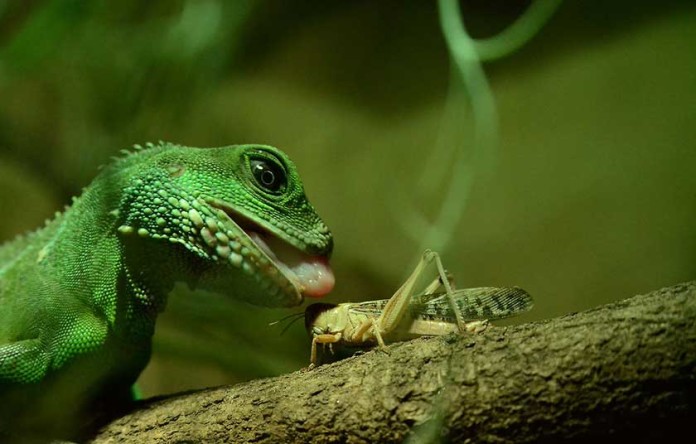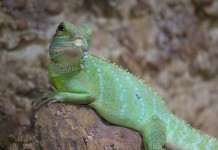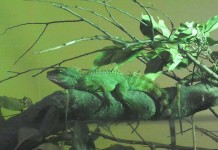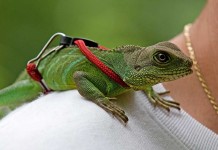Feeding your water dragon is very crucial as it determines the overall health of your pet. You should try to include a variety of nutritional substances in the diet plan for your dragon to achieve maximum health benefits. Baby or juvenile dragons require more care and attention than mature dragons. Whenever you decide to feed your dragon, you should have a close look at the food combination.
As a general rule, insects should make about 50% of your dragon’s meal. Earthworms can account for about 20% whereas 10 % of fruit and vegetables can also be included in the diet. You should also feed your dragons with whole prey including mice and rats.
Whole preys are a rich source of calcium and proteins. You can select pinkies, fuzzies and even adult mice for your dragon. Some dragon owners make a deadly mistake by not offering their pets with much variety. When you start feeding your dragons the same insects or whole preys every day, your pet does not get all the nutrients it needs for healthy growth.
Excessive feeding of whole prey is not recommended as too much protein can damage the internal organs of your dragon. It can cause a number of health disorders such as fatty liver and cataract. Your pet is classified as an omnivore and you should make sure it gets a balanced portion of nutrition in every meal.
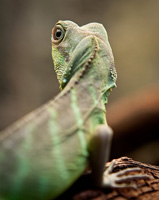 You should never feed your dragons with a large quantity of insects. This is because as a sole ingredient, insects don’t have a great deal of nutritional value. They do not contain rich supplies of calcium and are also high in phosphorus content. More importantly, insects also have an exoskeleton which is fairly difficult to digest if given in excessive quantities.
You should never feed your dragons with a large quantity of insects. This is because as a sole ingredient, insects don’t have a great deal of nutritional value. They do not contain rich supplies of calcium and are also high in phosphorus content. More importantly, insects also have an exoskeleton which is fairly difficult to digest if given in excessive quantities.
You need to understand that although crickets and mealworms are easy and cheap to purchase, they are not the only ingredient your water dragon needs. You can gut load the insects or dust them with calcium powder before offering them to your pet. Wax worms are typically high in fat content therefore should only be used as an occasional treat. Insects caught from your backyard are simply not suitable for your pet. They may contain traces of toxic pesticides and chemicals that can prove to be deadly for your water dragon.

